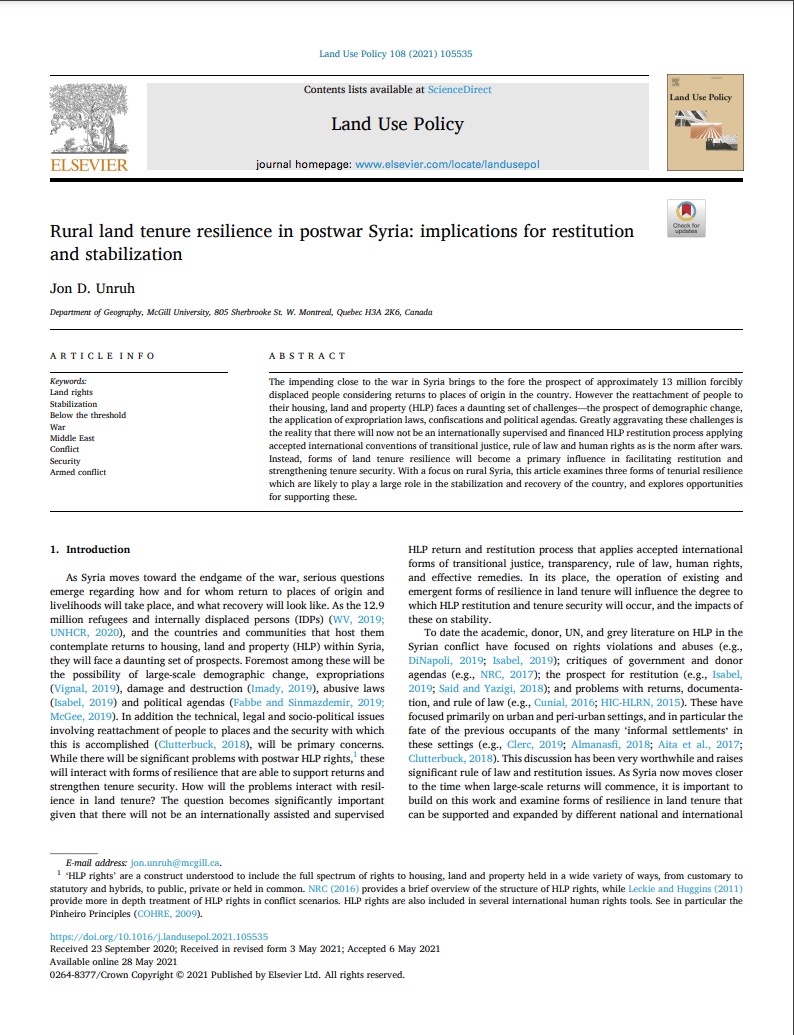Rural land tenure resilience in postwar Syria: Implications for restitution and stabilization
The impending close to the war in Syria brings to the fore the prospect of approximately 13 million forcibly displaced people considering returns to places of origin in the country. However the reattachment of people to their housing, land and property (HLP) faces a daunting set of challenges—the prospect of demographic change, the application of expropriation laws, confiscations and political agendas.











